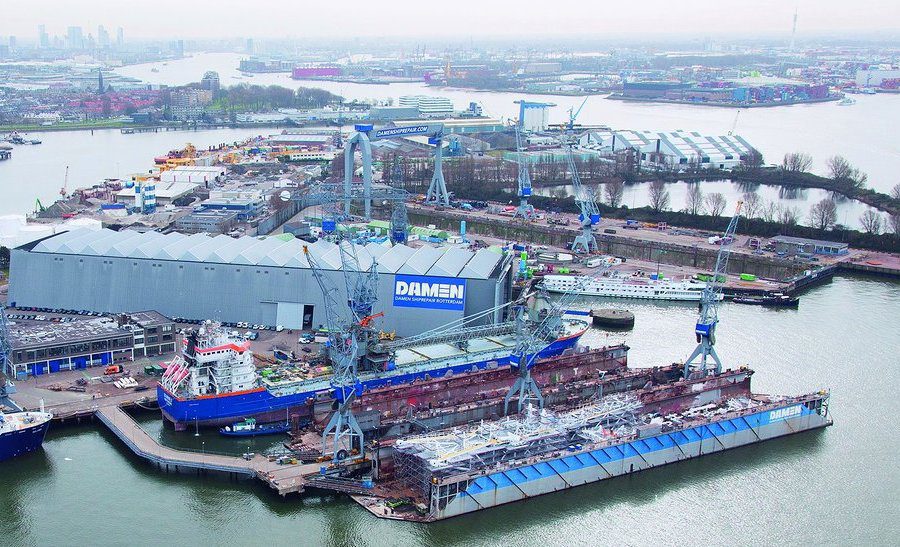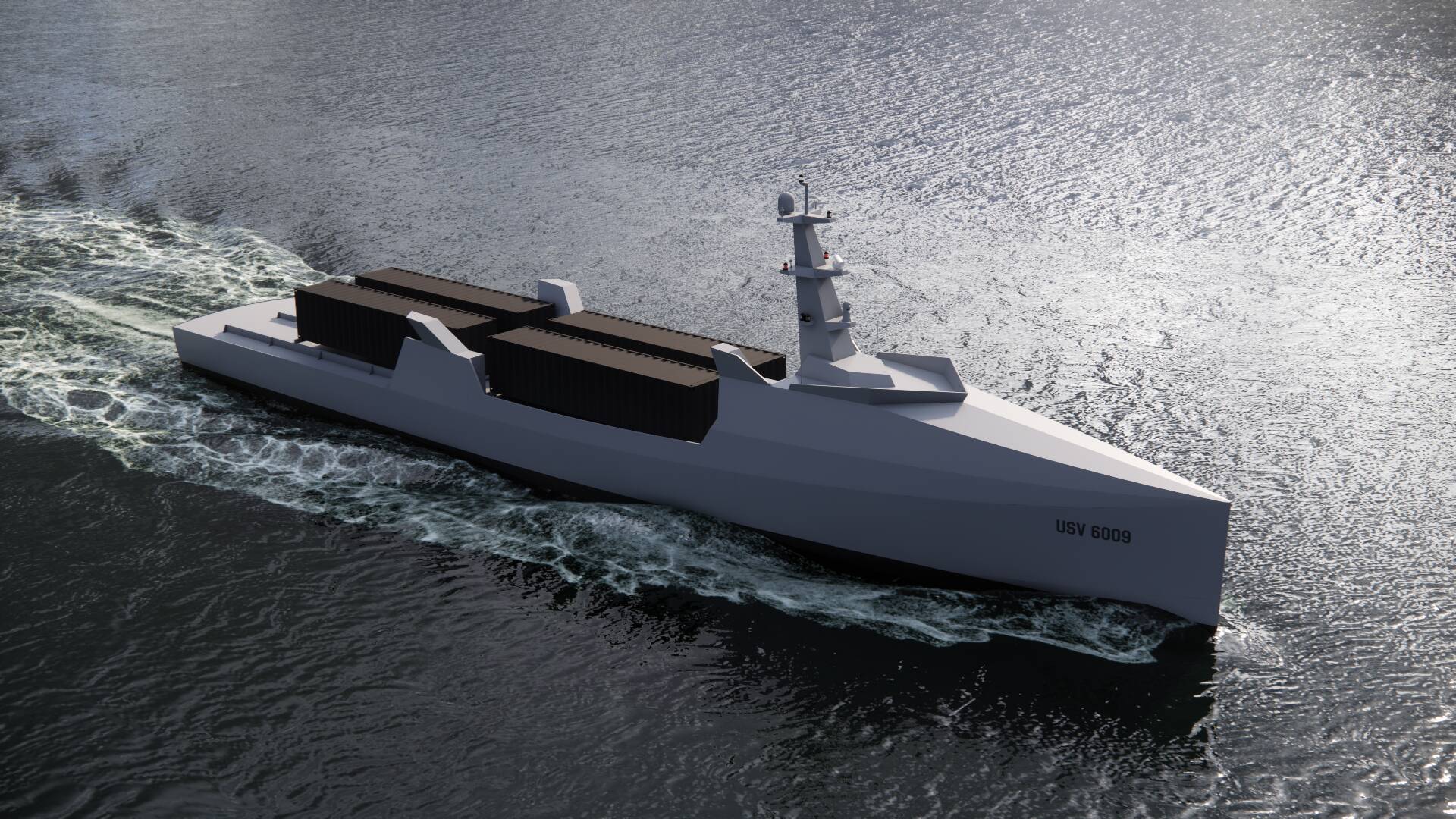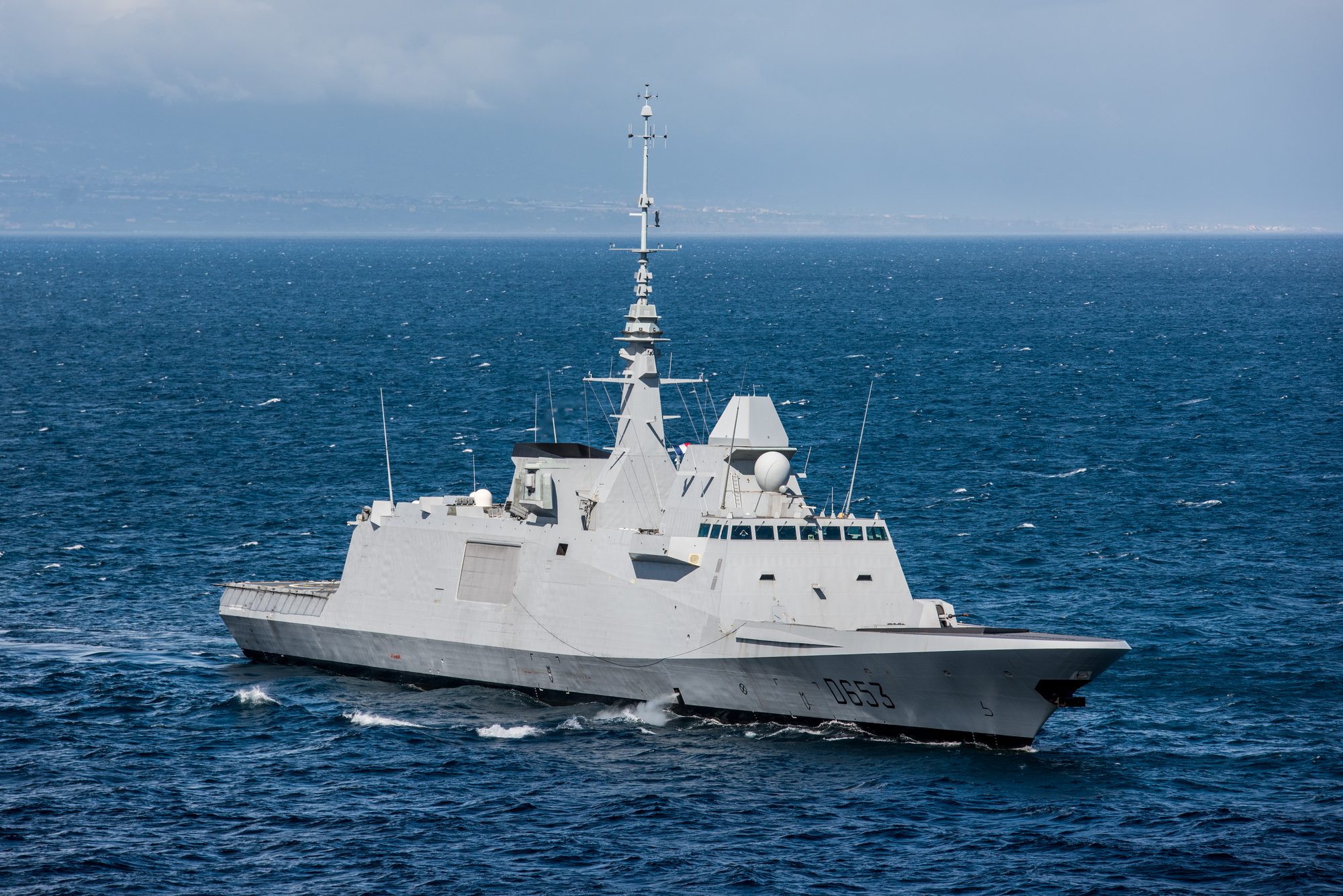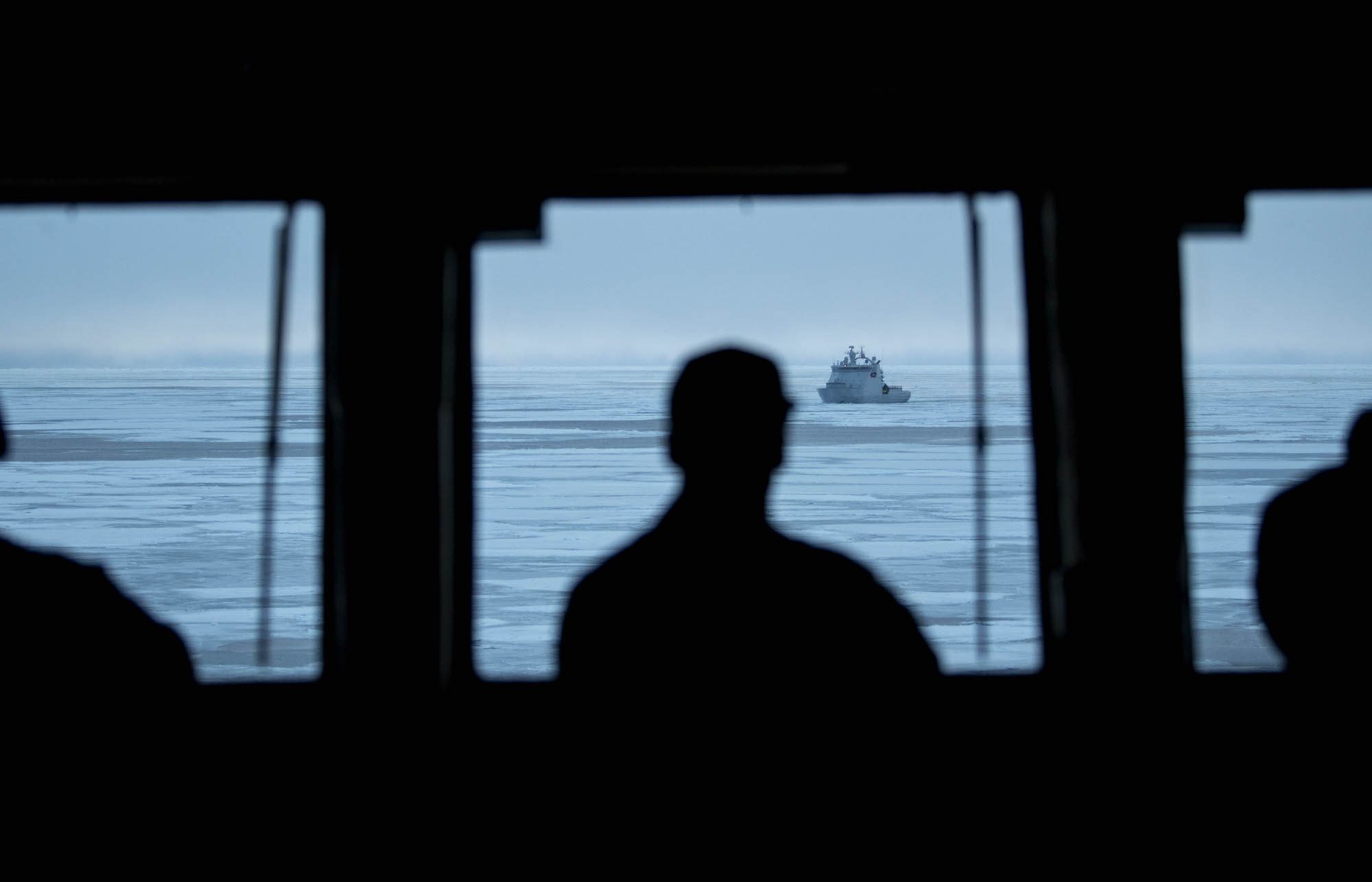By Charlotte Hughes-Morgan
Sep 19, 2025 (Bloomberg) –On a chilly day this February, Dutch Crown Princess Amalia smashed a champagne bottle against the hull of the combat support ship Den Helder as dignitaries — including executives from the shipbuilder, Damen Shipyards NV — cheered the christening.
Since then, the outlook for Damen has become less celebratory: Prosecutors have charged the company with corruption and sanctions violations, a major customer froze payments, and an acute cash shortage led the Dutch government to step in with an emergency support package in July.
The setbacks have rattled the firm’s NATO customers just as Europe has begun pouring billions of dollars into defense to confront an increasingly belligerent Russia. Legal proceedings will start by the end of the year, and convictions — with penalties that include fines and being barred from tenders — could cripple Damen and Dutch industry, and complicate the continent’s ambitions of rearming.
“It would be a huge blow for Dutch shipbuilding” if Damen were convicted, said Sebastiaan Bennink, partner at Amsterdam law firm Bennink Dunin-Wasowicz. Damen is “instrumental” for Europe’s military capacity, he added.
A sprawling group of 55 companies around the world, the Gorinchem-headquartered company employs about 12,000 people globally and reported over €3 billion ($3.6 billion) in revenue in 2023, according to accounts filed with the Dutch chamber of commerce.
The shipbuilder is led by Arnout Damen, whose father, Kommer Damen, restructured the family business in 1969 and now chairs its supervisory board.
Damen is building two anti-submarine warfare frigates for the Netherlands, two frigates for the Belgian navy, Germany’s F126 frigates — the largest ships in their fleet — and designing the Dutch navy’s new air defense and command frigates and amphibious transport ships.
If it can’t deliver on those projects, it will be tough for friendly nations to pick up the pieces at a critical time, said Nick Childs, senior fellow for naval forces and maritime security at The International Institute for Strategic Studies.
“There are only limited numbers of shipbuilders in Europe that can deliver high-end complex warships,” Childs said.
The Dutch prosecution service said in April that it would take Damen to court after separate criminal investigations into suspected bribery, forgery and money laundering between 2006 and 2017, and over violating sanctions imposed on Russia after its 2022 invasion of Ukraine.
The sanctions violation charge concerns “goods and technology that could contribute to Russia’s military and technological strengthening and/or the development of its defense and security sector,” prosecutors said in a statement in April.
Intentional violations of sanctions or export controls are criminal in the Netherlands. Judges can impose a fine of up to 10% of the company’s annual sales if they deem the standard penalty of just over €1 million too low. A criminal conviction can also block a company from participating in tenders for European contracts, Bennink said.
The sanctions case involves “the supply of a very limited number of civilian cranes to Russia. This delivery took place within the sanctions legislation in force at the time,” Damen said in a statement in April. The company said it has “always acted in accordance with the applicable sanctions packages and that full transparency has been exercised about its activities.” Officials at Damen declined to comment on the case beyond the statement.
The separate allegations of using bribes to secure foreign contracts have plagued the group for years. In 2016, the World Bank barred Damen from its projects for 18 months, saying the company had committed fraud by failing to disclose an agent and commissions under the West Africa Regional Fisheries Program. In 2017, local media reported that the Dutch tax investigation services had raided Damen’s Gorinchem headquarters in relation to foreign corruption.
The corruption trial against Damen Shipyards is set to start on Nov. 24, and includes prosecution of former and current company directors. The trial over sanctions violations will begin before the end of the year, but dates have not yet been confirmed.
German lawmakers recently froze a €671 million payment to Damen for six F126 ships after the company missed a delivery target. Germany says it is paying a total of about €9 billion for the frigates.
The move left the firm with what it calls a “temporary cash flow problem.” In a sign of the shipmaker’s importance, when Dutch parliament returned from its summer recess in July, it approved €270 million in support for Damen. The company says it has no financial issues as a whole, and the German defense ministry has said the project will continue.
In June, North Atlantic Treaty Organization members agreed to increase defense spending to 5% of their gross domestic product from 2%, after US President Donald Trump repeatedly lambasted his European allies for underspending on security.
European countries have been reviewing their naval capabilities given the heightened military threat from Russia and growing concern about the need to secure vulnerable undersea infrastructure. Norway recently picked the UK for a £10 billion frigate contract — the biggest—ever investment in the Nordic country’s defense.
In wartime, when enemy submarines are prowling, NATO’s ability to detect and destroy them will be crucial, said Sidharth Kaushal, senior research fellow in seapower at the Royal United Services Institute in London. Damen builds the type of warships needed for that mission.
“If a shipbuilder like Damen were to have issues, that would have pretty significant ramifications, and not just for the Netherlands,” he said.
© 2025 Bloomberg L.P.
Editorial Standards · Corrections · About gCaptain
This article contains reporting from Bloomberg, published under license.

 Join The Club
Join The Club











